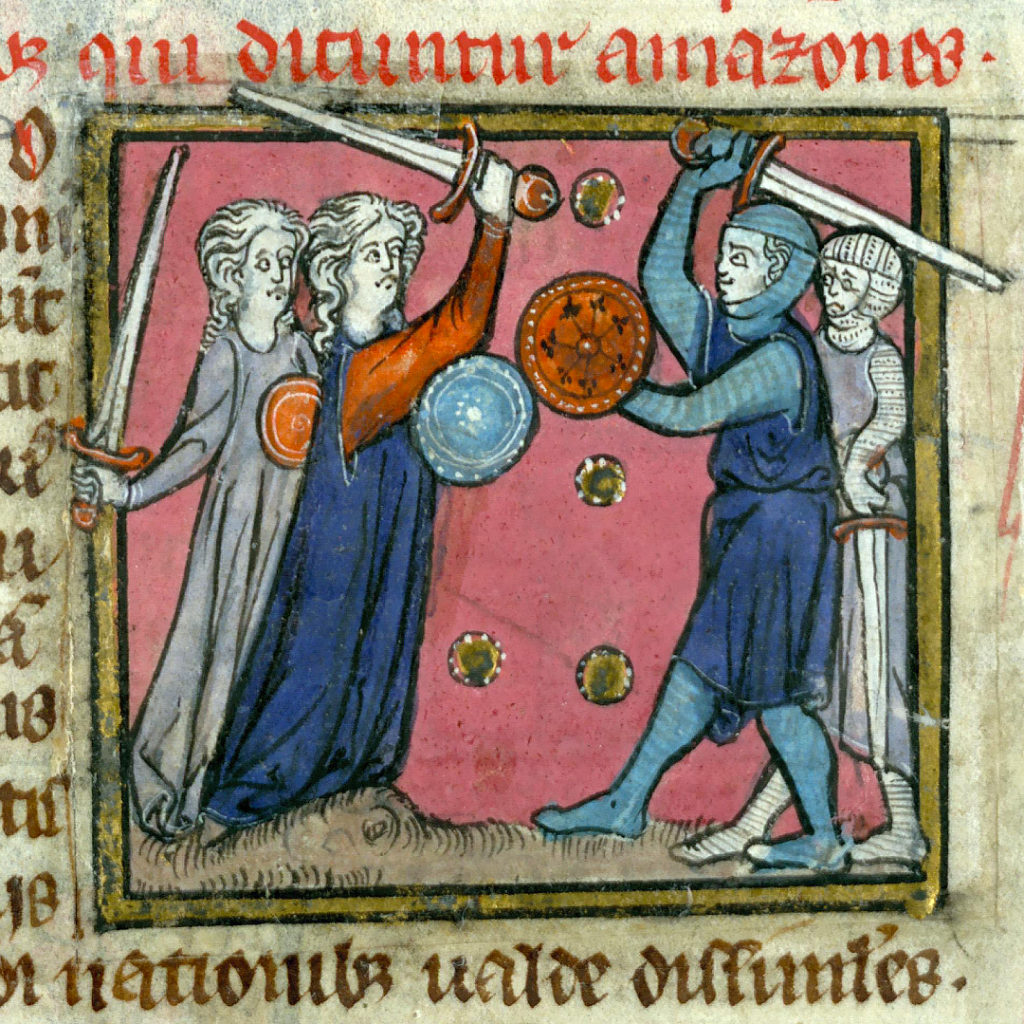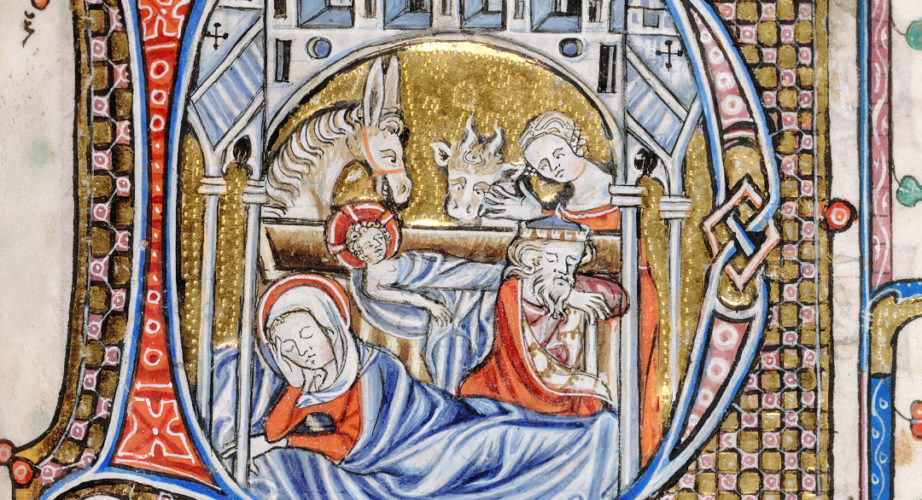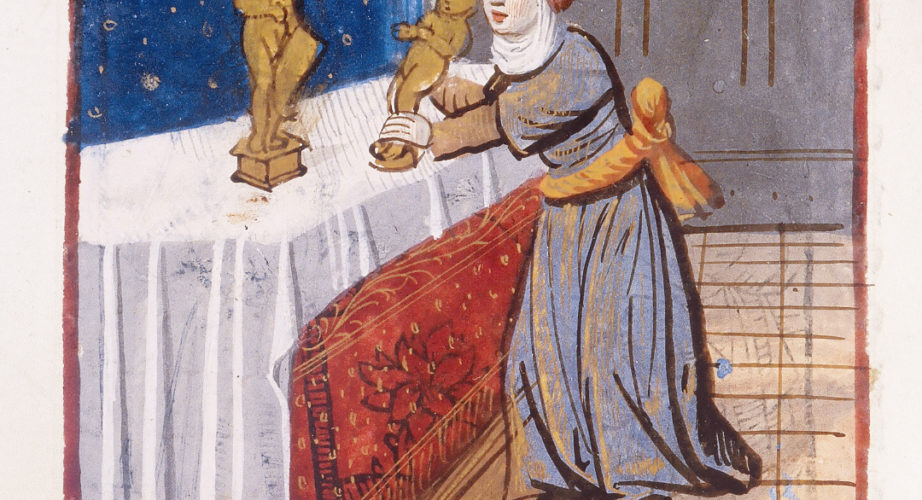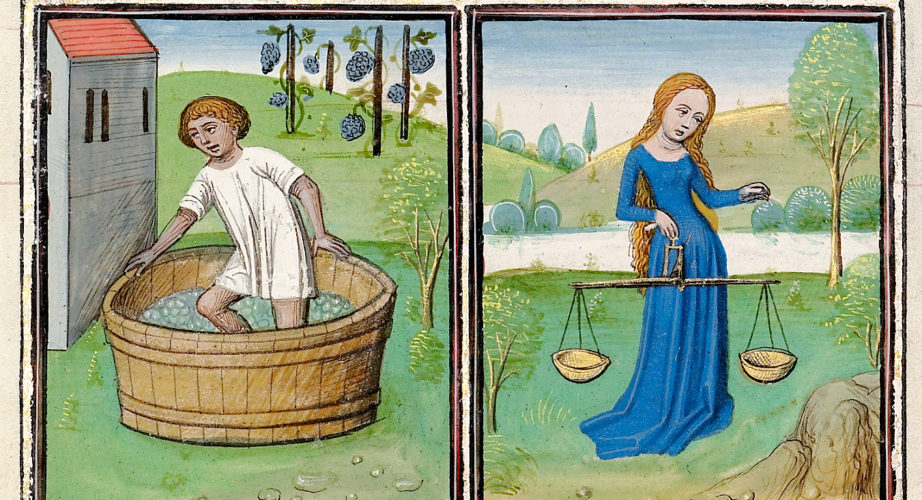THE AMAZONS
 Earlier today we had the chance to talk about two Amazon queens, Marpesia and Lampedo. But what about the Amazon tribe itself?
Boccaccio's main source, the ancient Greek historian Ephorus of Cyme, describes the rise of the Amazons and to places their lands in Cappadocia. When a faction from Scythia started pillaging and killing the men of many people in the area, the widows eventually grouped together with the few remaining men and moved war against their invaders; not content with vengeance, the tribe then continued to expand its territories by invading neighboring countries. In order not to leave all the glory to them, the women of the new tribe killed all the remaining men and started to have intimate relations with men from the areas nearby when needed - only to leave them as soon as they got pregnant. While male babies were immediately killed, females were raised as powerful warriors: their right breast was soon removed so that it would not impair their movements in archery. It is because of this practice that the name "Amazon" (a- meaning "without" and mazos meaning "breast" in Greek) came to be.
Amazons play an important role in mythology, and especially Greek mythology: according to legend, queen Penthesilea and her warriors participated in the Trojan War; her sister Hippolyta and her magical girdle, on the other hand, were the object of one of the twelve labours of Hercules. Another myth states that, under the rule of Queen Myrina, the Amazons invaded the island of Atlantis. The Spanish conquistador Francisco de Orellana gave the Amazon river its name after battling with tribes of female warriors, who reminded him of the Amazons.
We will be talking about Amazons again in a few of our future posts about the De Mulieribus Claris: Boccaccio has in fact dedicated a chapter to Orithyia, Antiope, and Penthesilea herself.
Earlier today we had the chance to talk about two Amazon queens, Marpesia and Lampedo. But what about the Amazon tribe itself?
Boccaccio's main source, the ancient Greek historian Ephorus of Cyme, describes the rise of the Amazons and to places their lands in Cappadocia. When a faction from Scythia started pillaging and killing the men of many people in the area, the widows eventually grouped together with the few remaining men and moved war against their invaders; not content with vengeance, the tribe then continued to expand its territories by invading neighboring countries. In order not to leave all the glory to them, the women of the new tribe killed all the remaining men and started to have intimate relations with men from the areas nearby when needed - only to leave them as soon as they got pregnant. While male babies were immediately killed, females were raised as powerful warriors: their right breast was soon removed so that it would not impair their movements in archery. It is because of this practice that the name "Amazon" (a- meaning "without" and mazos meaning "breast" in Greek) came to be.
Amazons play an important role in mythology, and especially Greek mythology: according to legend, queen Penthesilea and her warriors participated in the Trojan War; her sister Hippolyta and her magical girdle, on the other hand, were the object of one of the twelve labours of Hercules. Another myth states that, under the rule of Queen Myrina, the Amazons invaded the island of Atlantis. The Spanish conquistador Francisco de Orellana gave the Amazon river its name after battling with tribes of female warriors, who reminded him of the Amazons.
We will be talking about Amazons again in a few of our future posts about the De Mulieribus Claris: Boccaccio has in fact dedicated a chapter to Orithyia, Antiope, and Penthesilea herself.
"Battle of the Amazons", illumination from the manuscript "De Natura Rerum" by Thomas of Cantimpré (specifically from book 3, "De mulieribus pugnatribus qui dicuntur Amazones"), ms. 0320 (304), f. 044, ca. 1290, Bibliothèque Municipale, Valenciennes.
Post consigliati
Happy Holidays from Folia Magazine!
Two sleepy parents and a very awake Child... in a way, this Nativity…
Rachel
On September 30, the Church celebrates the feast day of St. Rachel, Jacob's…
Autumn
Da oggi (precisamente alle 8.50 italiane!), con l'ingresso del Sole nella costellazione della…


